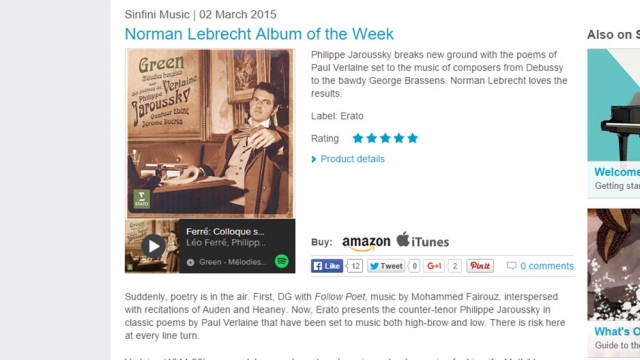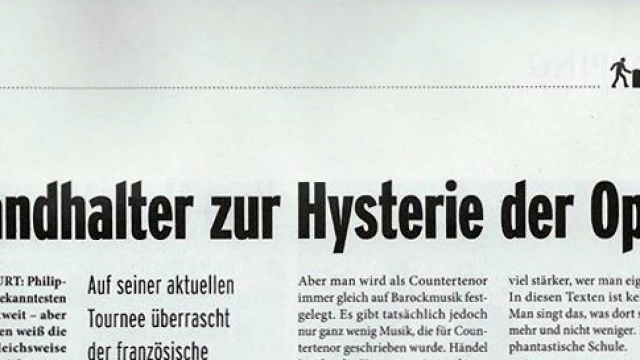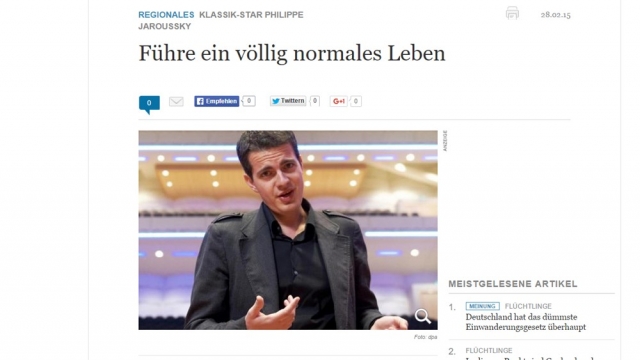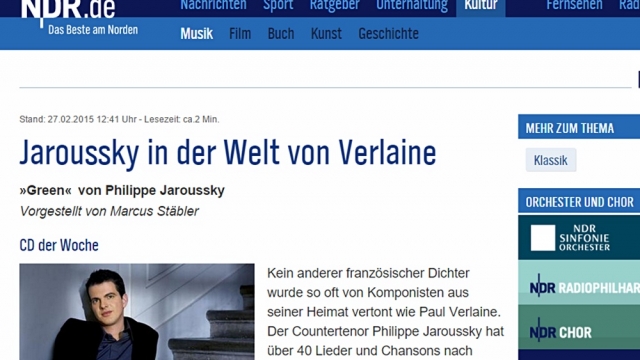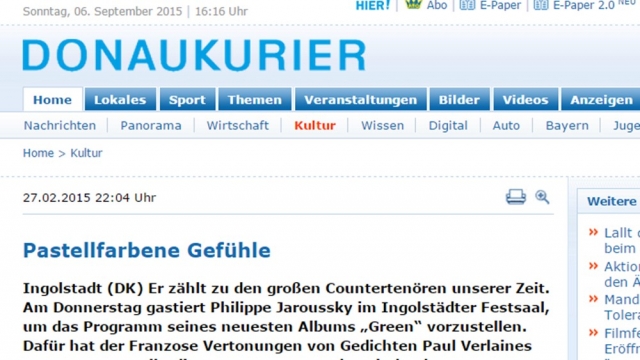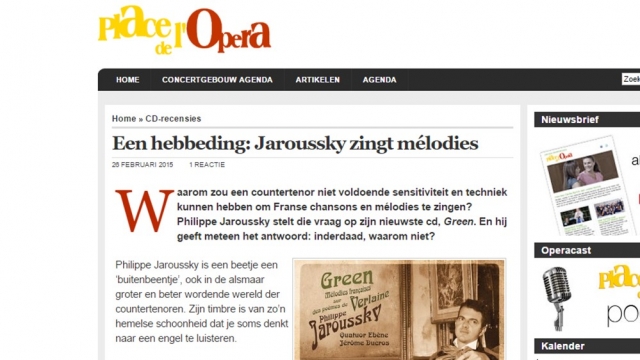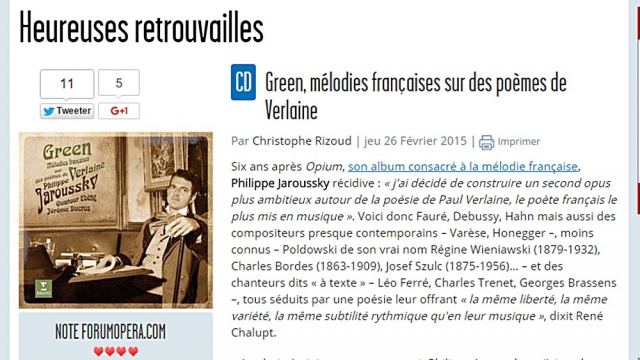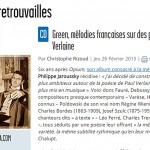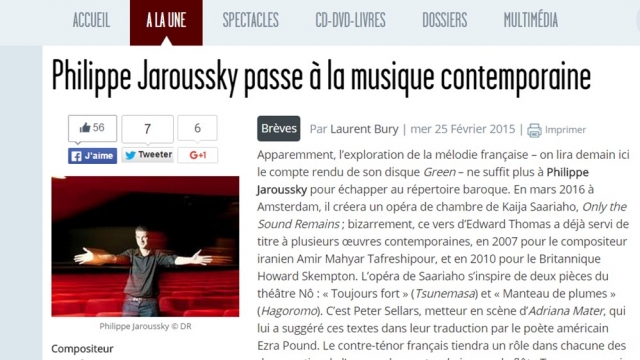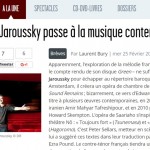2015-02-27, Donaukurier
Dann haben Sie ja noch einiges vor sich, oder?
Jaroussky: Natürlich werden die Alte und die Neue Musik für Countertenöre weiterhin das zentrale Repertoire sein. Aber ich bin davon überzeugt, dass heute Countertenöre darüber hinaus Weiteres erschließen müssen – auch ein Repertoire wie auf dem „Green“-Album. Für meine Stimme eignen sich übrigens auch die „Kindertotenlieder“ von Mahler, zwei oder drei habe ich bereits gesungen.
There’s a lot yet to be done then, isn’t it?
Jaroussky: Of course, early and new music will continue to be the core of the countertenor repertoire. I am convinced, however, that today, countertenors have to explore further – which includes a repertoire like the one on “Green.” By the way, the “Kindertotenlieder” by Mahler also suit my voice, two or three I have even sung already.
Source/Read more: Donaukurier (paid content)
The following is not a professional translation; no profit is being made, no infringement of copyright is intended.
Pastel-Coloured Feelings
Ingolstadt (DK) He is one of the great countertenors of our time. On Thursday, Philippe Jaroussky performs at the Ingolstädter Festsaal, introducing his latest album “Green.” For this, the Frenchman has compiled different settings of Verlaine’s poems that were created around 1900 – amongst others, by Gabriel Fauré or Claude Debussy. Jaroussky comes to Ingolstadt along with his pianist Jérôme Ducros, to capture the sound-sensual atmosphere of the French “Fin de Siècle.
Mr Jaroussky, you are a countertenor. So why do you sing settings to music of Verlaine’s poems, created around 1900?
Philippe Jaroussky: Because, on one hand, I want to show that it is perfectly possible for an opera singer to give recitals. On the other hand, I feel very attracted by the settings to music of Verlaine and French song. In opera – more so, in Baroque, which is obviously the center piece for us countertenors – you have to give shape to hysterical feelings sometimes. You kill, you are jealous, insidious. At some very dramatic moments, I reach my limits. Whereas in French song, I have to express more pastel-coloured feelings, a lot of melancholia, just to name one. It might sound strange as a countertenor, but I feel at home in this repertoire.
Continue Reading

